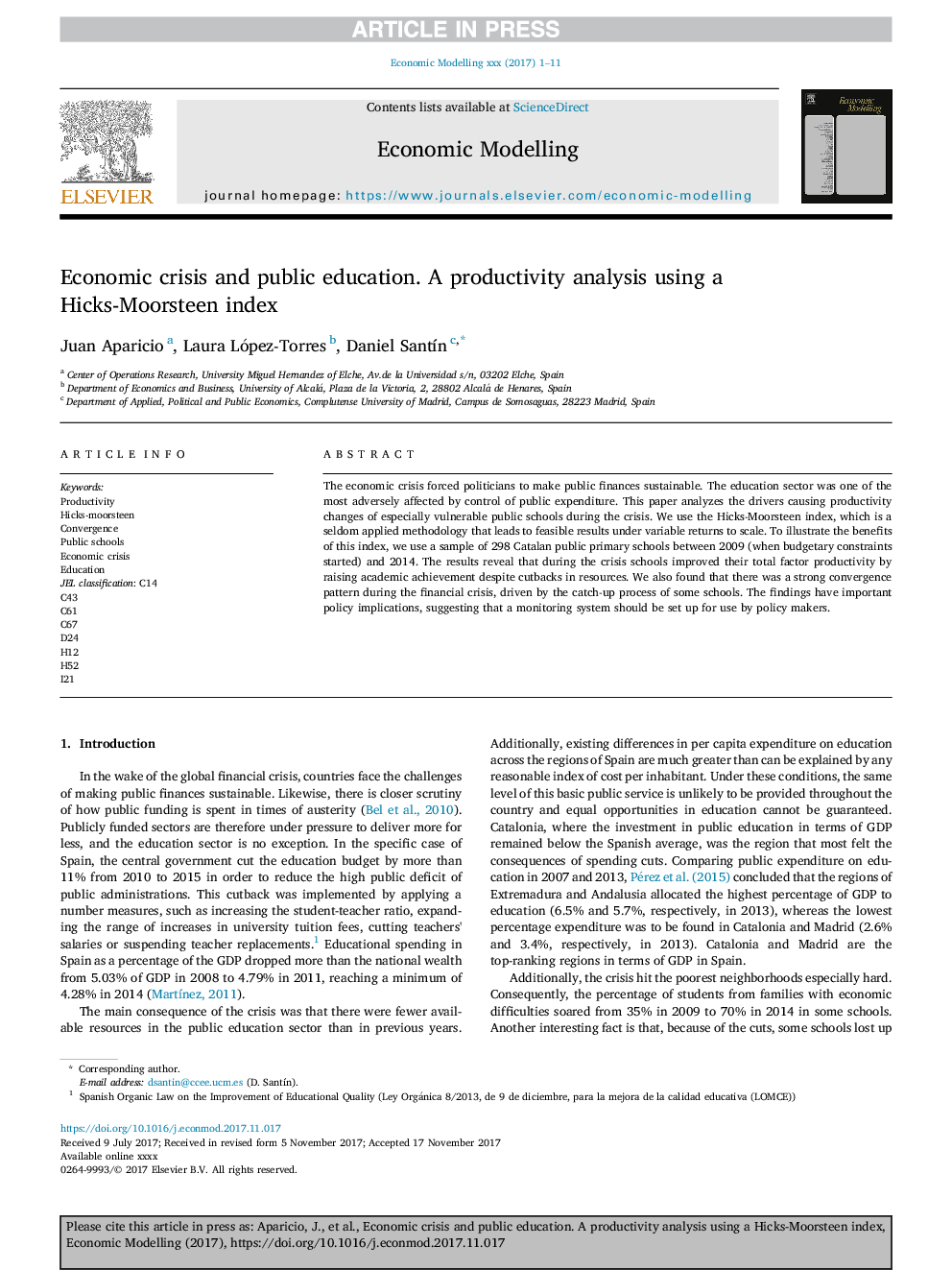| Article ID | Journal | Published Year | Pages | File Type |
|---|---|---|---|---|
| 7347104 | Economic Modelling | 2018 | 11 Pages |
Abstract
The economic crisis forced politicians to make public finances sustainable. The education sector was one of the most adversely affected by control of public expenditure. This paper analyzes the drivers causing productivity changes of especially vulnerable public schools during the crisis. We use the Hicks-Moorsteen index, which is a seldom applied methodology that leads to feasible results under variable returns to scale. To illustrate the benefits of this index, we use a sample of 298 Catalan public primary schools between 2009 (when budgetary constraints started) and 2014. The results reveal that during the crisis schools improved their total factor productivity by raising academic achievement despite cutbacks in resources. We also found that there was a strong convergence pattern during the financial crisis, driven by the catch-up process of some schools. The findings have important policy implications, suggesting that a monitoring system should be set up for use by policy makers.
Related Topics
Social Sciences and Humanities
Economics, Econometrics and Finance
Economics and Econometrics
Authors
Juan Aparicio, Laura López-Torres, Daniel SantÃn,
